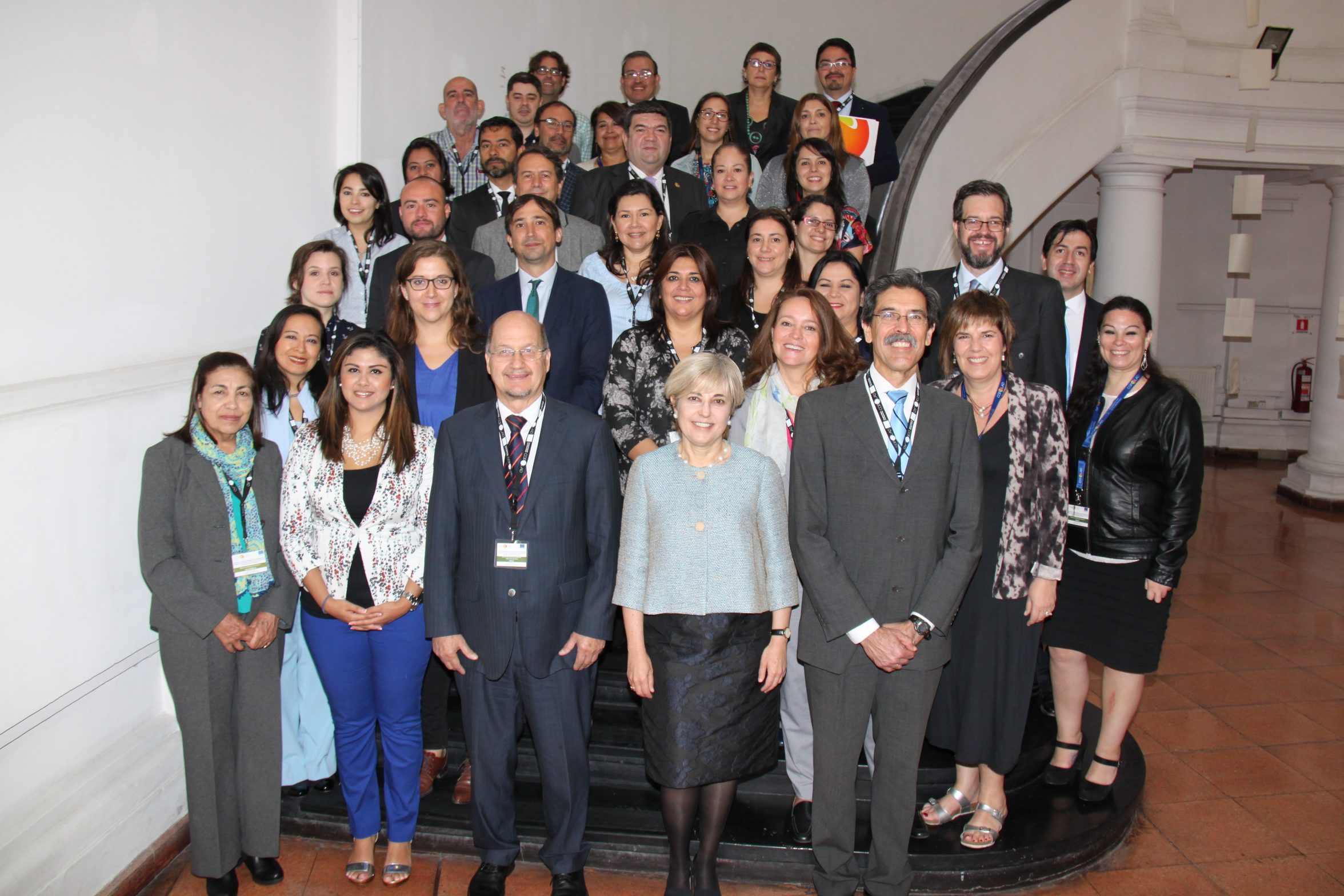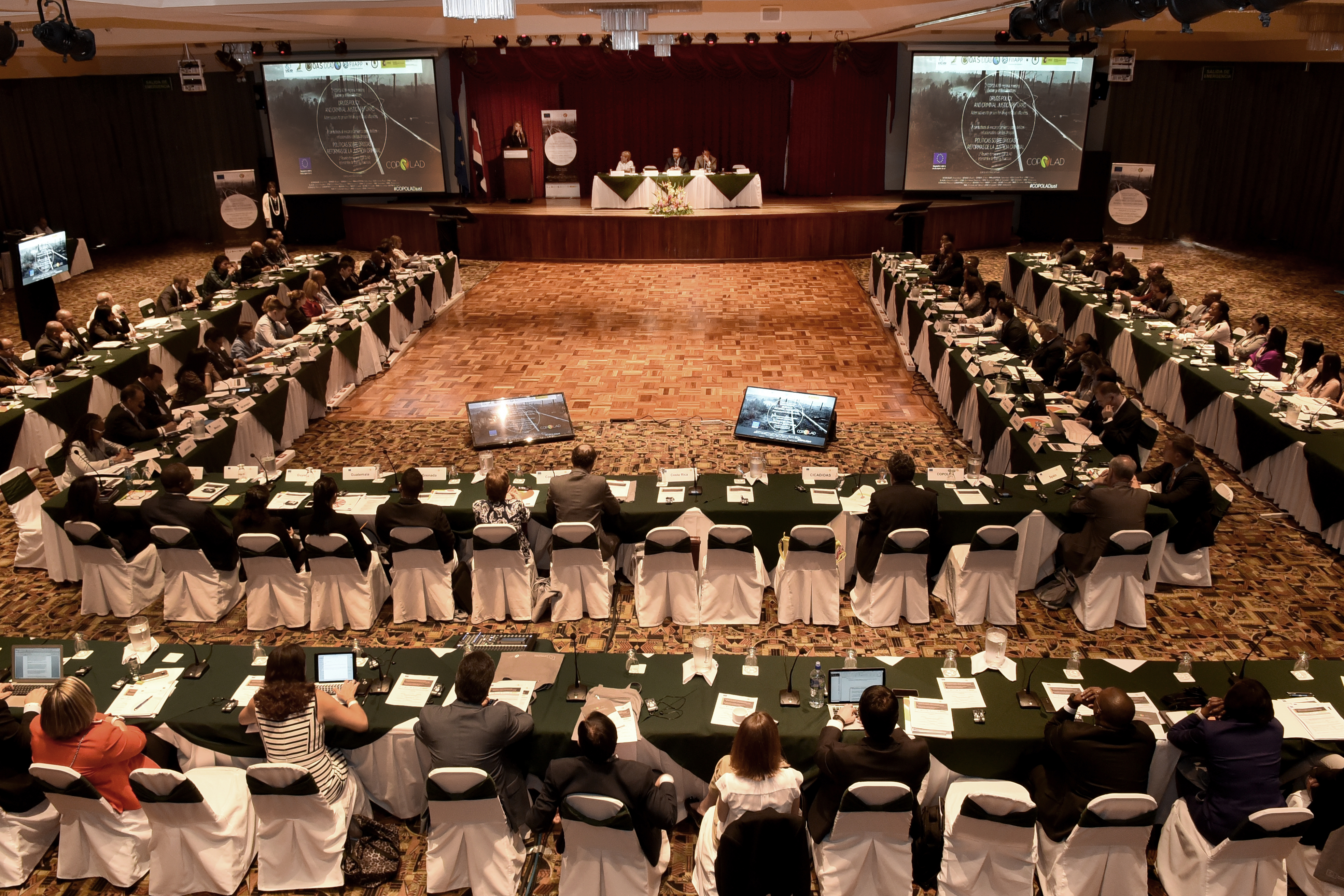The validation and piloting process of quality criteria for accreditation of DDR programmes is successfully progressing
Three Working Groups (WG) from Latin America and the Caribbean are working in the process of validation and piloting of the COPOLAD quality and evidence criteria, to contribute to the institutional strengthening needed to support the regulation and future accreditation of DDR programmes in interested countries.
The first WG from Latin America, made up by 15 countries, was led by Chile through its National Service for the Prevention and Rehabilitation of Drug and Alcohol Use (Servicio Nacional para la Prevención y Rehabilitación del Consumo de Drogas y Alcohol, SENDA), is validating the criteria in the field of treatment and harm reduction in Latin America. During this GW’s first international meeting, held in March in Santiago de Chile, interested countries agreed upon the specific piloting methodology. Currently Argentina, Chile, Colombia, Costa Rica, Cuba, Ecuador, El Salvador, Guatemala, Honduras, Mexico, Panama, Paraguay, Peru, Uruguay and Venezuela, as well as RIOD, have formulated their internal work plans and formed their expert groups, which are fine-tuning some aspects of the adaptation to the country language and creating indicators that form the piloting instrument in the field in the treatment centres that are already selected.

The second WG, comprised of 10 countries and led by Costa Rica, through the Costa Rican Drugs Institute (Instituto Costarricense sobre Drogas, ICD), is validating the criteria in the field of prevention and risk reduction. Parting from a validation protocol of a common language, Argentina, Chile, Colombia, Guatemala, Honduras, Mexico, Panama, Peru and Venezuela, have started to articulate their national expert groups and define DDR prevention programmes to be incorporated in the piloting. Representatives from these countries, together with representatives of the Advisory Council (COPOLAD, PAHO/WHO, CICAD-OAS, RIOD and IDPC), will participate in the first working meeting, where the piloting protocol will be agreed to initiate the field phase (San José, Costa Rica, 27 and 28 September).
The countries of the English-speaking Caribbean, led by Trinidad and Tobago, through the National Drug Council (NDC), have set up the third WG, with experts from The Bahamas, Granada, Jamaica and Trinidad and Tobago, with previous experience in standards development processes developed in the framework of CARICOM. This expert group is validating the language of the criteria for prevention and treatment, in the English version provided by COPOLAD and, together with the agencies of the Advisory Council (COPOLAD, PAHO/WHO, CICAD-OAS, CARICOM, RIOD and IDPC) will be holding the first working meeting (Georgetown, Guyana, 3 and 4 October). This opportunity will allow defining the agreed piloting protocol for the subsequent piloting in all interested Caribbean countries.
International Edition of online training courses
During last June, COPOLAD launched the first international edition of three online training courses in order to continue the strategy of capacity building addressed to Latin American professionals responsible for planning, evaluation and training in Drug Demand Reduction in their countries. The courses being offered currently are: 1) "Use of Alcohol and Other Drugs: Evidence-Based Prevention"; 2) " Comprehensive and Integrated socio-sanitary care system for drug dependence from primary care"; and 3) "The public health approach in drugs policies (new)".The thematic contents of those courses address the needs raised in the region, according to the demands received from the countries.
Each course meets all established expectations. It has more than 60 students per course, making a total of 195 public sector professionals who are working in the field of additions from national, regional and/or local planning levels. The countries’ National Drug Agencies have been supporting this edition by identifying/selecting candidates, according to a set of criteria. The teaching work and coordination of courses is being very positively led by Chile, Peru and Uruguay respectively.
A second international edition of the courses in English and Portuguese versions is planned. It will be launched in January 2018 and it will continue to strengthen the skills of professionals in the Caribbean countries and Brazil.
In this second semester of the year, we are beginning to work on developing a fourth course focused on how to reduce the adverse consequences of drug use in populations at high social risk and health vulnerability. The need for the integration of therapeutic approaches to achieve a quality biopsychosocial approach is based on the evidence of effectiveness and efficiency. The course will follow a similar structure to the previous courses and will consist of 12 topics. It will once again count on the authorship of experts with great academic and professional experience in the subject. The launch of this course is scheduled for 2018.

Costa Rica hosts 1st COPOLAD Bi-regional Meeting for the exchange of best practices
COPOLAD, in close cooperation with the Executive Secretary of the Inter-American Drug Abuse Control Commission (CICAD/OAS), and the local support of the hosting country: Costa Rican Drugs Institute (Instituto Costarricense sobre Drogas, ICD) and the Costa Rican Judiciary hold the 1st Bi-regional Meeting for the exchange of best practices. “Drugs Policy and Criminal Justice Reforms: Alternatives to prison for drug-related offences” (San Jose, Costa Rica, 27-29 June) The meeting facilitated: the review of the available evidence in the area of criminal reforms related to drug offences; the Information exchange to identify encouraging experiences and to share lessons learned in both regions (EU and CELAC).
121 representatives from 40 countries (9 from the European Union, 17 from Latin-America and 14 from the Caribbean), a European agency (EMCDDA), multilateral agencies (CICAD-OAS and UNODC) and bi-regional networks (AIAMP, IDPC and RIOD) contributed to point out the main progress achieved and the challenges that remain to be faced in the short and medium term.
The meeting also allowed the identification of trends in the drug-related criminal laws in both regions, EU and CELAC, as well as existing and possible alternative programmes to imprisonment, before and during the criminal proceedings in addition to those for the prison population. It also encouraged the debate about the need to adapt the criminal justice to specific groups such as women, adolescents and people with mental health issues.
The final work carried out by the working groups set up in the framework of the meeting, allowed the identification of the key elements and challenges in the field and their applicability in the context of Latin America and the Caribbean.
The event has had a high impact on social media networks and channels, which underlines the attention paid by the international community to the search of better and more efficient programmes that could address the legal procedures more focused on people and their rights in the framework of drug use-related crimes.

